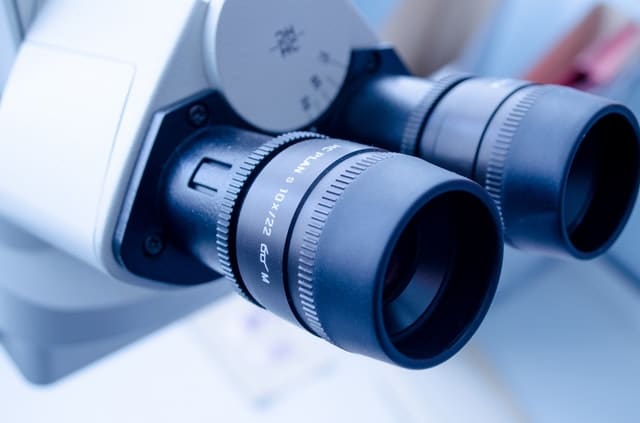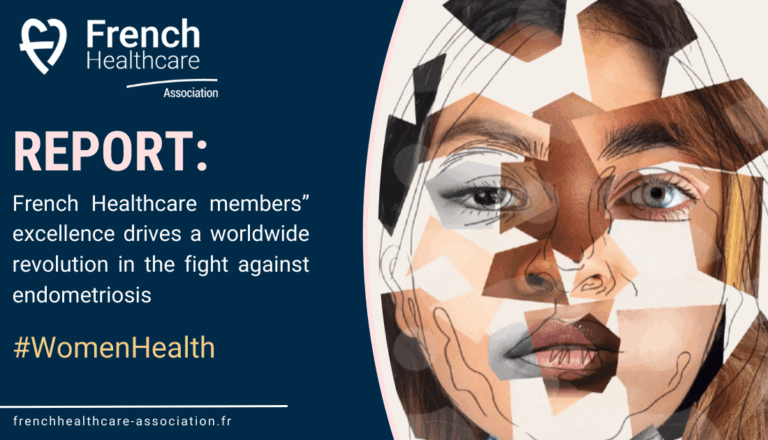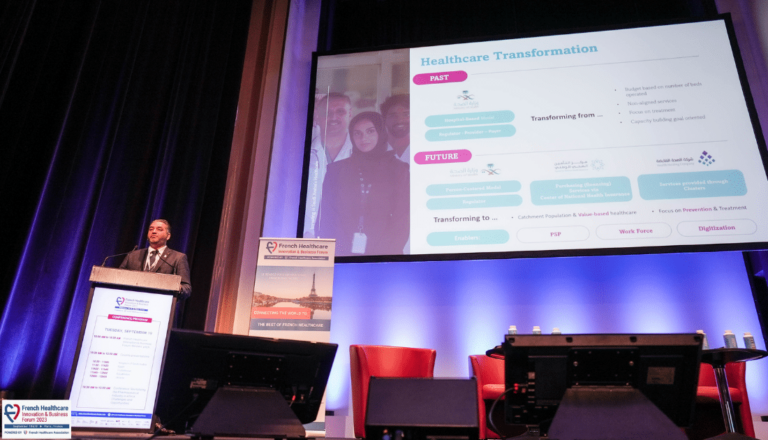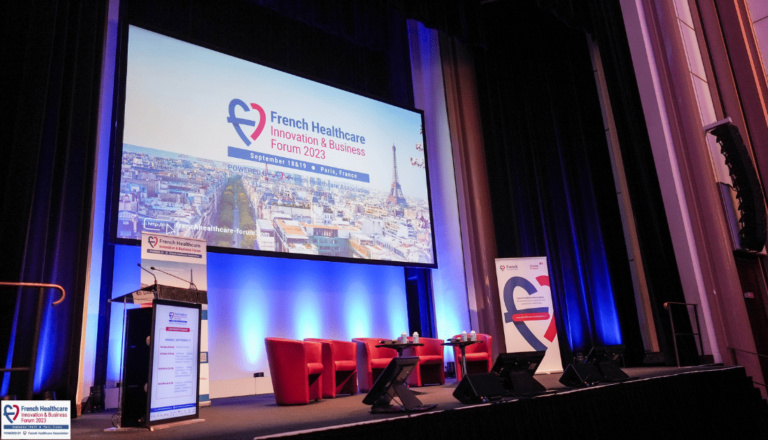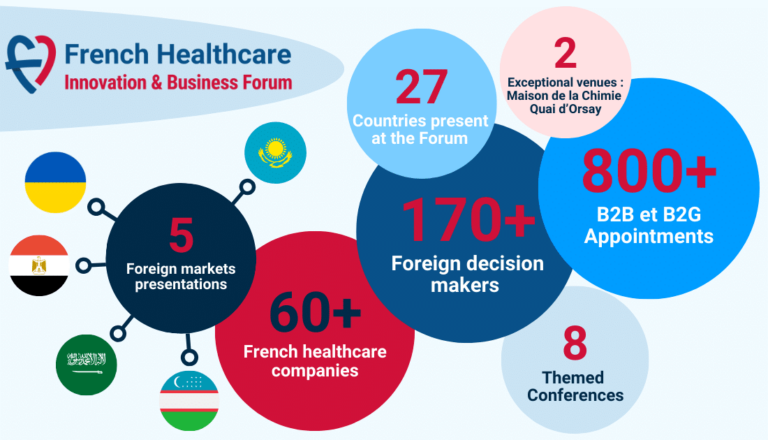Infectious Diseases
France, which is a driving force in the fight against infectious diseases, is recognized for its innovative potential, the quality of its research and the density of its networks. Its ethical commitment to universal access to healthcare helps increase its influence. Given that the Covid-19 pandemic has confirmed the need for international co-operation, France is playing its part in the inevitable One Health approach, founded on interactions in the fields of human, animal and environmental health. The issue at stake is the need to anticipate the risks of emergence.
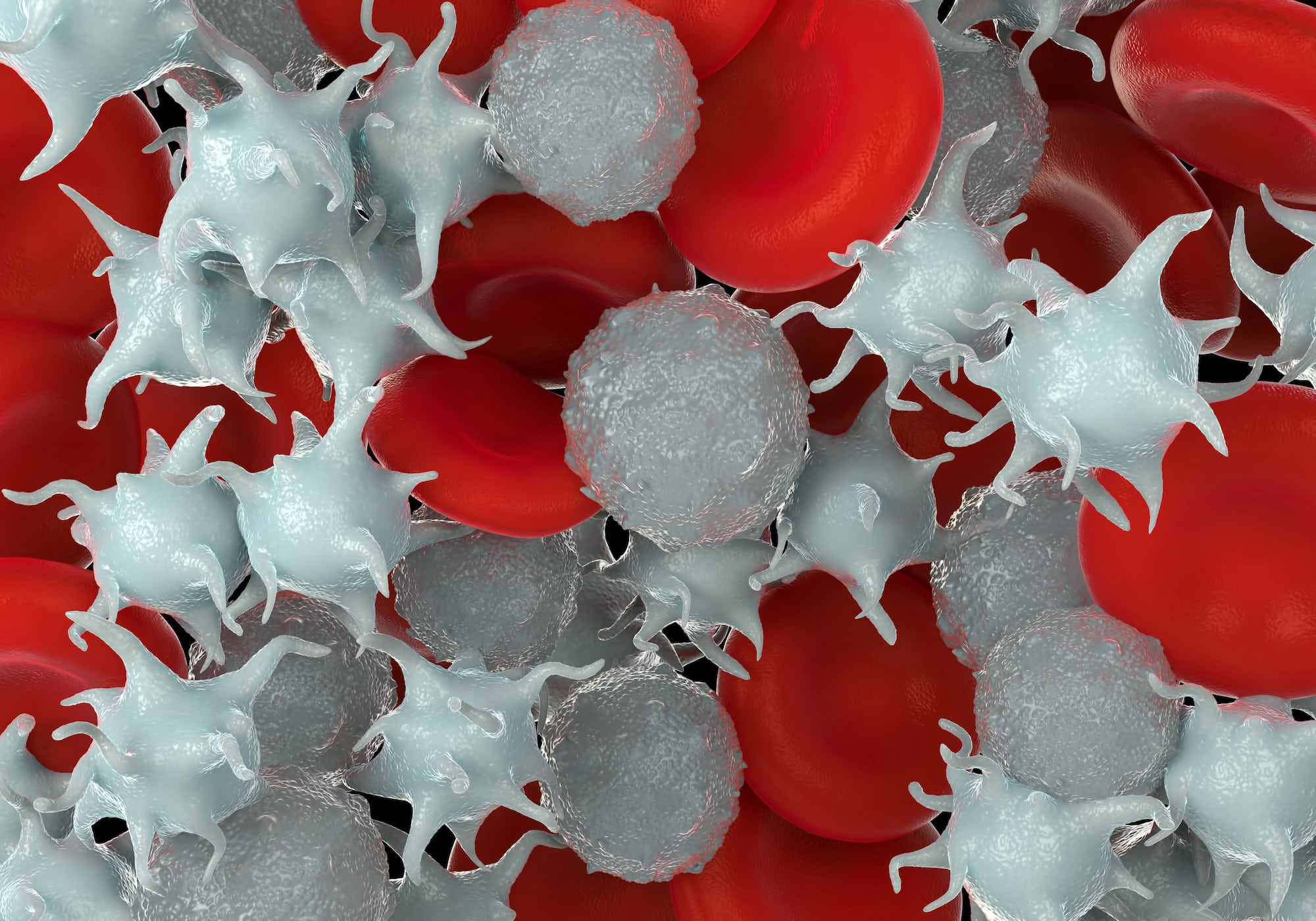
Prevent, detect and innovate by co-ordinating forces
The progress made in the field of hygiene and the rise of antibiotics and vaccines enabled us over the course of the 20th century to reduce mortality and put an end to a certain number of epidemics (smallpox, poliomyelitis, measles and so on). One might have thought that we had seen the end of infectious diseases. But the threats of new pandemics are real and the emergence of respiratory viruses such as that responsible for Covid-19 reminded us of this fact. Since the early 2000s, SARS, the H1N1 flu pandemic, Ebola and Marburg hemorrhagic fevers, the Zika virus and other arbovirus infections such as Chikungunya have resulted in national and international crises, which have profoundly challenged the health-related, economic, social and political equilibrium. The urgency of these crises means that international organizations, states, healthcare agencies, NGOs, research organizations and the pharmaceutical industry are attempting to improve co-ordination in order to deal with epidemics, at a time when climate change and inherent socio-demographic changes are increasing the potential for disease. “Deforestation, climate change, urbanization, faster transport and increased contacts between the animal world and the human world are factors that mean that the emergence of new pathogens with pandemic potential is no longer just a hypothesis,” said Prof. Michel Kazatchkine, who has over 35 years’ experience in the global health sector as doctor, researcher, administrator, decision maker and diplomat.
In recent decades, the fight against AIDS, malaria and tuberculosis has led to the reconfiguration of international healthcare architecture, with the creation of new institutions to which France has directly contributed: UNAIDS (designed to co-ordinate the initiatives of the various UN specialized agencies to fight the HIV/AIDS pandemic), the Global Fund to Fight AIDS (the only financing structure of its kind in the world), Unitaid (another public-private partnership that facilitates access to therapeutic innovations) and the Gavi global alliance that improves access to vaccines. “France has been a driving force in the fight against infectious diseases worldwide. Even today, it is a massive supporter of these organizations, in particular the Global Fund and Unitaid. It has historical importance and it has been involved for a very long time. One of the other French strengths is the very dynamic nature of its associative network in the field of infectious diseases (Médecins Sans Frontières of course, but also Solthis, Sidaction, Aide/Coalition Plus, Act-up, Médecins du Monde, etc.),” said Stéphanie Tchiombiano, doctor in political science and co-ordinator of the Global Health 2030 think tank. “The fight against AIDS has been, in a sense, a laboratory for global health by helping break down borders and disciplines,” she added. “The AIDS epidemic created a particularly strong dynamic and unprecedented financial mobilization, in particular between 2000 and 2010. Today we consider that, at a global level, the improvement of certain demographic or health indicators can to a large extent be attributed to the success of the fight against infectious diseases. This progress is considerable but fragile, with major inequalities between different countries and within countries, and risks of stagnation or decline in certain areas. In so far as concerns HIV,15% of HIV-positive people around the world remain unaware of their status. The fight against malaria has also been stagnating since 2015.”
France’s image in the area of infectious diseases is marked by the tutelary figures of Prof. Françoise Barré-Sinoussi and Prof. Luc Montagnier, who discovered the retrovirus responsible for AIDS in 1983. The extensive international influence of French research, thanks to the network of Pasteur Institutes, the various offices of the IRD (Institut de Recherche pour le Développement) and the partnerships created around the ANRS-Maladies Infectieuses Émergentes (or MIE) has contributed to the creation of very tangible links between French researchers and international researchers, in Africa and Asia in particular. “One of the other French peculiarities is the highly multidisciplinary nature of healthcare research, with a strong involvement of social sciences and legal departments. There are many examples – regarding free access to antiretroviral drugs in Africa, for example, teams worked on the ground with anthropologists and sociologists and have shown the extent to which being free of charge was a very important factor regarding access to healthcare and vital in encouraging people to undergo screening,” said Stéphanie Tchiombiano.
The Covid-19 crisis – a trigger for action
The Covid-19 pandemic caused a rupture. “It revealed a lack of funding, a lack of young researchers and a lack of co-ordination,” said virologist Marie-Paule Kieny, former research director at INSERM, who was responsible at WHO for research co-ordination and vaccine development during the Ebola crisis in Western Africa between 2014 and 2016.
“We hope that with the new measures put in place – including the creation of the ANRS-MIE whose role is to drive action forward – we will fix these problems. The France 2030 plan, which envisages the relocalization and increase in production capacities of drugs considered vital, is also a step in the right direction. France is readying itself, determined to play its part again among our coordinated nations, by making massive investments and recreating an ecosystem that is favorable to innovation,” she said. As president of the French Scientific Committee on the Covid-19 vaccine, Dr. Marie-Paule Kieny was tasked by the Ministry for Health and Research with devising a road map designed to stimulate vaccine research and development. She has just submitted her plans. “Three points absolutely deserve to be strengthened,” she said. “Firstly, upstream research needs to be revitalized, i.e. we need to encourage and financially support researchers searching for new vaccines or new vaccine platforms. We need to make large-scale investments in this field and open research paths so as to create posts, to encourage young people to return to this sector. Secondly, we must put in place accelerators to support innovations, from the research stage to the proof of concept stage. The Lyon Biocluster, which is more of an industrial accelerator, has just been announced (see insert 2). Finally, clinical research needs to better structured and professionalized. Clinical trials in France are still too slow and burdened with too much bureaucracy.”
The only French member of the independent assessment panel for the international response to Covid-19, Prof. Michel Kazatchkine, former director of the Global Fund to Fight AIDS, is calling for a thorough overhaul of the international alert system, and for vaccines to become a global public good. “By being better prepared, we will be able to avoid the emergence of a new infectious agent which turns into an epidemic and then evolves into a pandemic. A few weeks away from the UN summit in New York, now is the time to make decisions that will genuinely transform the system. This implies changes in governance, by creating for example a security council on healthcare issues. We can already see that Covid is fading fast from people’s memories, despite the fact that this crisis, which impacted on health, the economy and society, led to 20 million deaths,” he pointed out. He would also like to see a review of the approval procedures for clinical trials and vaccines, in order to ensure that trials are not created solely to respond to the issues associated with a Western market.
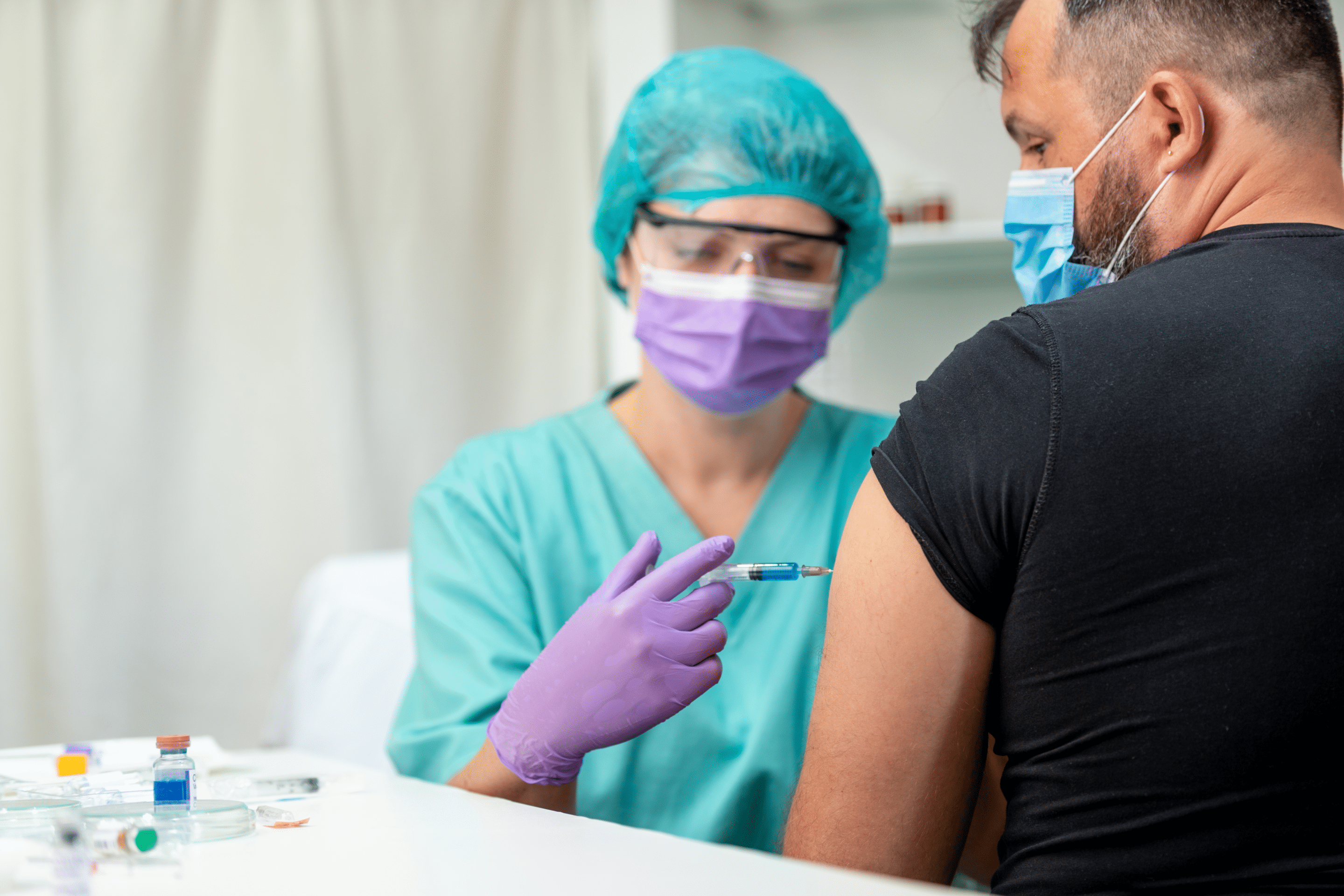
Prevention, detection, treatment and surveillance
The parts of the puzzle are slowly coming together to create this structured, dynamic ecosystem favorable to innovation. Emerging infectious diseases and nuclear, radiological, biological and chemical threats (NRBC) are thus included in the five priorities of the new health innovation agency, which was created as part of the 2030 Health Innovation plan.
Another essential piece of the puzzle – the ANRS-MIE, created in 2021 – aims to co-ordinate, organize, evaluate and finance research into HIV, viral hepatitis, STIs, tuberculosis and emerging and re-emerging infectious diseases, in particular emerging respiratory infections (including Covid-19), viral hemorrhagic fevers and arbovirus infections. The time needed for research is long and the first results will only become evident after five years, but two elements are already indicative – the doubling of the agency’s budget (from €40 million for the old ANRS to €80 million for the ANRS-MIE) and the implementation of Emergen, a genomic research and surveillance network with Public Health France, to track the genetic evolution of the SARS-CoV-2 virus, to study the distribution over space and time of variants and detect new pathogens by analyzing waste water. “We have achieved what we wanted in terms of funding even if it is not permanent and still rather complex in terms of governance,” said its director, Prof. Yazdan Yazdanapanah. He recently launched a call for projects to define and promote a national and international research program into the prevention, rapid detection, treatment and surveillance of emerging and re-emerging infectious diseases, in accordance with the One Health approach. “The four pillars are prevent, rapidly detect, develop tools and make them available,” he said. “The priority is to avoid the declaration of an epidemic, bearing in mind that 70% of diseases come from the environment. The second point consists of putting in place modern surveillance tools, in order to ensure that cases are detected as soon as they appear. The third axis, linked to innovation, consists of developing a vaccine, a treatment and diagnostic tools for each of these diseases. Finally, innovation must be accepted, used and recognized, and communicated appropriately.”
The ANRS-MIE stresses the development of national, European and international partnerships of stakeholders, including the affected populations. “Partnerships already exist for HIV and we are extending them to cover hepatitis and tuberculosis. We are starting to work via calls for projects on emerging pathologies, initially on hemorrhagic fevers and arbovirus diseases. In Africa, we have entered into partnerships with Senegal, Côte d’Ivoire, Burkina-Faso, the Democratic Republic of Congo, Cameroon and Guinea. In Asia, we are collaborating with Cambodia and Vietnam and in South America with Brazil,” Prof. Yazdan Yazdanapanah said. France has a lot to offer via the links and networks it has created over a very long time in the countries that are most vulnerable to these emerging diseases. “Since the end of the 90s France has built a positive image of its international and multilateral commitment as part of the fight against AIDS,” said Prof. Michel Kazatchkine. “As a founder of the Global Fund to Fight AIDS, it has worked in partnership with different countries with limited resources, whilst respecting civil society. A number of these partnerships are now confronted by the international political situation, and the rejection of France in a certain number of African countries, including the Sahel, is having a real impact.”
Antibiotic resistance, the phenomenon that leads to bacteria becoming resistant to antibiotics, is one of the major challenges for the decades ahead. “We absolutely must regulate the use of antibiotics,” said Marie-Paule Kieny. “Europe has improved a lot over recent years in so far as concerns treating pets with antibiotics. But we have not yet seen any great progress in the treatment of humans. In many countries, antibiotics are still sold without a prescription.” Five years ago, France put in place an ambitious antibiotic resistance research program, which aims to develop research consortia, with programs in biology and the development of new approaches in the field of human and social sciences, in order to better understand the brakes and levers that need to be activated. “This is excellent,” said Marie-Paule Kieny. “Today, we need to see the extent to which this field will continue to remain a top priority for political decisions makers.” France is one of the most committed countries in so far as concerns driving these co-ordinated actions at a global level, actions that require a multi-disciplinary, multi-stakeholder and multi-sectoral approach. Because, as Stéphanie Tchiombiano, co-ordinator of the Global Health 2030 think tank, points out “the Covid-19 crisis obliges the international community to take this new imperative into account – we do not have any other choice than global health, co-operation and solidarity at a planetary scale.”

What are infectious diseases?
“These are diseases for which the signs and pathologies reflect the multiplication or impact of an infectious agent, whether a virus, a bacterium or a parasite in our human organism. These infectious pathologies are extremely numerous and diversified. Today, some of them have a particularly severe public health impact, such as HIV, hepatitis, tuberculosis, malaria, infant diarrhea and so on,” said Prof. Bruno Lina, professor of virology and president of the French Biocluster for Innovation in Infectious Diseases (BCF2I).
The Biocluster supports the development of bacteriophages
Phage therapy is a promising projects at the new French Biocluster which specializes in infectious diseases. Bacteriophages are capable of attacking bacteria specifically, increasing in numbers and destroying bacteria with no impact on human cells. They represent a complementary approach to antibiotic therapy used to treat patients given the worrying development of antibiotic resistance.
Accelerating research, being an information relay at the highest level and facilitating the implementation of the marketing of healthcare products are the aims of the new French Biocluster for Innovation in Infectious Diseases (BCF2I), selected in connection with the 2030 Health Innovation plan. Created in May 2023, the Lyon Biocluster specializes in the fight against emerging infectious diseases and resistance to antibiotics. Its aim is to support the development and marketing of diagnostic, therapeutic and vaccine solutions, in order to anticipate the risks of an epidemic and pandemics, with special attention to zoonotic diseases and multi-resistant pathogens.
By bringing together infectious disease experts in laboratories, research centers, surveillance networks (networks of the Institut Pasteur and the Fondation Mérieux in particular), healthcare establishments and businesses, this ecosystem aims to combine the advantages of upstream multi-sectoral research with industrial response capacity, from startups to major pharmaceutical groups. “We have implemented the bulk of the Parisian and Lyon forces to build a strong basis for fundamental research, in partnership with veterinarians. We also rely upon hospitals to develop translational research with clinical trials and in order to have a source of biological samples from infected patients, to help us understand the mechanics of infectious diseases. Finally there is translational research centered on healthcare products (diagnostic tools, antimicrobial treatments and vaccines),” said Prof. Bruno Lina, virologist and president of the Biocluster. The “agile and lightweight” structure is also entrusted with rapidly assessing potentially usable products.
There are three situations that are problematic. “The first relates to diseases that can’t be cured because the pathogenic agent persists for a long time and cannot be eliminated, either by the immune system or by drugs. The prototype of this type of disease is HIV. The challenge is to achieve a cure for such diseases that are becoming chronic. The second problem relates to emergence, such as the Covid crisis, where we were caught off guard from a therapeutic point of view and we need to start over again, to implement a strategy that allows us to develop effective vaccines and identify effective anti-viral treatments. The third problem relates to existing drugs, notably antibiotics, antivirals or anti-parasitic products for which pathogens develop resistances. These pathogens are capable of producing genetic changes that allow the infectious agents to thrive and to persist despite the presence of antimicrobial agents. The prototype is resistance to antibiotics but it is also true for antiviral and anti-parasitic agents. In these conditions, alternative strategies need to be found, whether in relation to emergence or resistance.” The therapeutic repositioning of existing molecules is one of the options and is the subject of research programs. Another strategy encouraged by the Biocluster is phage therapy.
A made-to-measure therapeutic alternative
Discovered 100 years ago by French-Canadian biologist Félix d’Hérelle, phages were abandoned in favor of antibiotics, which were considered to be more effective. “The idea now supported by a number of researchers is to say that we are capable of manufacturing bacteriophages specific to a bacterium which presents a difficulty in terms of therapeutic care, either because it is highly resistant to antibiotics, or because it is very difficult for antibiotics to access (for deep bone infections or infections of the central nervous system, for example). Bacteriophages offer the advantage that even when present in small quantities at the site of the infection, they will infect a bacterium, kill it and make an enormous amount of bacteriophages locally,” said Prof. Bruno Lina.
Phage therapy has the dual advantage of being able to continue to treat infections with a product that remains effective “even if all the antibiotics on the planet no longer work” and can serve to treat areas where the quantity of therapeutic products capable of accessing the site is very low. “It is not the solution for every problem, as bacteria can also develop a resistance to bacteriophages,” the member of the Comité de Veille et d’Anticipation des Risques Sanitaires (Covars) added. “Currently we are trying to recover the bacterium responsible for a chronic infection, to have a bank of bacteriophages from the virus family and to carry out laboratory tests on the sensitivity to these different bacteriophages of the bacterium infecting the individual, and when we have demonstrated that it is effective, we will implement production specific to the individual,” he stated.
Over the last five years, Prof . Frédéric Laurent, head of service at the Institut des Agents Infectieux at the Hospices Civils in Lyon, has treated around forty patients using phages, injected directly into the joint, in combination with antibiotics. These were mainly cases of complex osteoarticular infections and inflammation of the heart valves. In early 2022, the PHAG-ONE project implemented under his direction obtained funding of €2.85 million for the development of phage use, in connection with the call for projects titled “Antibiotic Resistance – Understand, Innovate, Act” funded by the Agence Nationale de Recherche (ANR). No marketing approval has yet been obtained for a drug containing bacteriophages in the European Union or the USA. But in 2022 the Agence Nationale de Sécurité du Médicament et des Produits de Santé (ANSM) authorized compassionate access to two anti-Staphylococcus aureus bacteriophages (PP1493 and PP1815), for the treatment of serious bone and osteoarticular infections.
